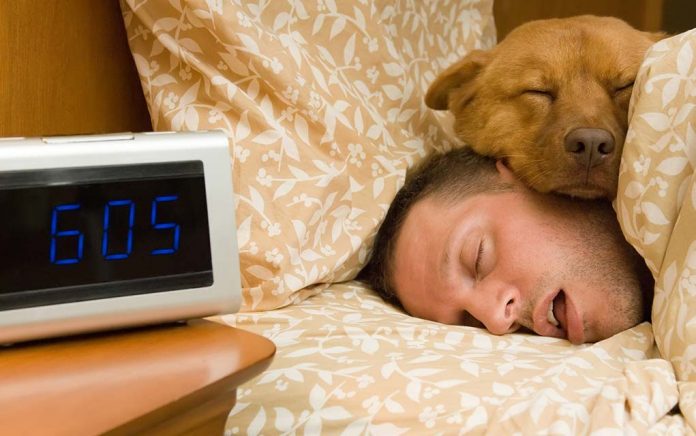
If your day begins with you grumpily dragging yourself out of bed after hitting the snooze button a few times, you’re not alone. The majority of adults, about 57%, admit to hitting the beloved snooze button at least once each morning. But what are we really gaining from those precious few minutes of extra Z’s? According to science, we’re only making ourselves more tired.
Why Hitting Snooze Is Bad for You
Consistent, restful sleep rewards you with many benefits, including better performance and decision making, reduced stress, lowered risk for serious health issues and less weight gain. Interrupted sleep, however, can do the exact opposite and leave you feeling tired and groggy. To get the most from your sleep, you must complete the entire sleep cycle.
Right before you wake up in the morning, your brain is in a crucial part of your sleep cycle called REM. The REM phase is highly restorative and necessary for your health. Typically, your last REM cycle ends just before you wake up naturally, resulting in a completed sleep cycle. If you hit your snooze button, however, you fall back into REM sleep almost immediately, but you won’t have time to finish it. Waking up in the middle of your REM cycle will make you feel crazy foggy and exhausted, a state referred to as sleep inertia.
If you Must Hit Snooze, Do This
If you’re no fan of jumping straight out of bed at the first trumpeting of your alarm clock, you can use the snooze button. But you have to use it the right way. Don’t go back to sleep. Instead, use the time to do some light stretching in bed or run through your to-do list in your head.
Get Better Sleep and Wake Up Easier
Want to feel and perform at your best every day? Practice good sleep hygiene. According to the National Sleep Foundation, you should get 7 to 9 hours of sleep per night. Also, avoid things that mess with your sleep, such as late-evening caffeine consumption, too much light in your bedroom, too many naps and uncomfortable sleep conditions.
Take steps to wake up with your first alarm, which will make mornings easier for you over time. Other things that make will make it easier for you to wake up in the morning include getting enough sleep, a natural or simulated sunrise, placing your alarm across the room, the smell of freshly brewed coffee (set your timer) and scheduling an early-morning activity that you love.
You don’t have to continue to rely on your snooze alarm to get you through the morning. With good sleep hygiene and a new and improved morning routine, you will find that mornings get easier for you.


















